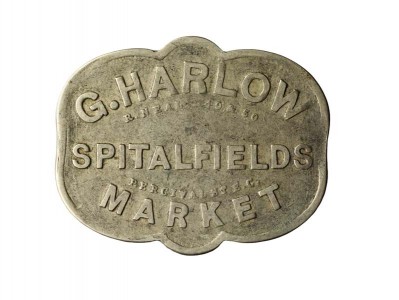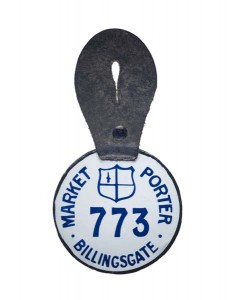A recent survey by the Museum of London suggests that the use of Cockney rhyming slang, a tradition which originated with the market traders and street vendors of London’s East End in Victorian times, is gradually dying out. As successive generations become attuned to different nuances of a constantly evolving language, it appears that Cockney rhyming slang has largely been superceded by the language of the internet age. Although immortalised in countless films, television programmes and written works it seems that Cockney rhyming slang, whilst still a recogniseable mode of speech, is no longer regularly spoken even by East End Londoners themselves.
What is Cockney rhyming slang?
Cockney rhyming slang involves the substitution of a common word with an alternative phrase that, in part, rhymes with the original word. The non-rhyming part of the phrase is then uttered in place of the original word, leaving the listener to work out what the speaker is referring to. For example, in Cockney rhyming slang the word ‘telephone’ is substituted for the phrase ‘dog and bone’. In usage the phrase is shortened simply to ‘dog’. Therefore, in Cockney rhyming slang you might tell someone that you were going to telephone your wife by saying “I’m going to call my trouble on the dog”. (Trouble and strife = wife). Since a vast lexicon of Cockney rhyming slang phrases entered into common usage amongst East London’s tradesmen from the mid-nineteenth century onwards, conversations between those fluent in the language could be difficult to decipher by anyone not familiar with the practice. Opinions vary as to the purpose of Cockney rhyming slang; some believe that it enabled traders and criminals to discuss matters amongst themselves in a way that could not be understood by the casual listener, whilst others suggest that the adoption of a particular language register among a group of people acts as a means of strengthening and unifying the group. Or, it might simply have evolved to enable people to communicate more easily in the noisy environment of a crowded London marketplace.
The Evolution of Cockney Rhyming Slang
Although its original purpose may have been lost, the appeal of Cockney rhyming slang sustained its continuing use and adaptation until well into the twentieth century. In their depiction of characters from the East End of London, television shows such The Sweeney ( the title itself an example of rhyming slang for a unit of the Metropolitan police; ‘Sweeney Todd’ = ‘Flying Squad’), ‘Minder’ and ‘Only Fools and Horses’ popularised Cockney rhyming slang, spreading its appeal to a national rather than regional audience and prompting the expansion of its vocabulary with contemporary additions. Perhaps the best known and most widely used modern example of a modern-day addition to Cockney rhyming slang is the phrase “It’s all gone a bit Pete Tong” whereby the famous dance DJ’s name popularly replaces the word ‘wrong’. Similarly, phrases such as ‘cream-crackered’ meaning ‘knackered’ (i.e. tired or worn out), ‘Barney Rubble’ for ‘trouble’ and ‘Hank Marvin’ for ‘starving’ have entered the public consciousness and remain in popular everyday use.
The Future of Cockney Rhyming Slang
The findings of the Museum of London’s investigation into the currency of Cockney rhyming slang reveal that many people still recognise phrases that have entered into the widest usage over the course of history, for example ‘apples and pears’ for ‘stairs’, ‘plates of meat’ for ‘feet’ and ‘pork pies’ or ‘porkie pies’ for ‘lies’ but that this recognition no longer extends to actual regular usage of Cockney rhyming slang in speech, even among Londoners. Whilst new phrases have been introduced in the last two decades (‘Britney Spears’ for ‘beers’ for example) many of these new additions have failed to capture the wider public’s imagination suggesting that in the longer term Cockney rhyming slang is losing its relevance for a contemporary and technologically literate generation. Sadly, it seems that where once we were having a ‘bubble bath’ (laugh), nowadays we’re content to LOL.
John is a guest blogger from National London van hire.
[box]The Museum of London’s ‘Cockney Survey’ asked 2,000 Britons, including 1,000 from London, about their knowledge of both Cockney rhyming slang and the use of modern slang in conversation as well as their attitudes towards it. You can find the press release regarding the survey on the museum’s website here.[/box]
































